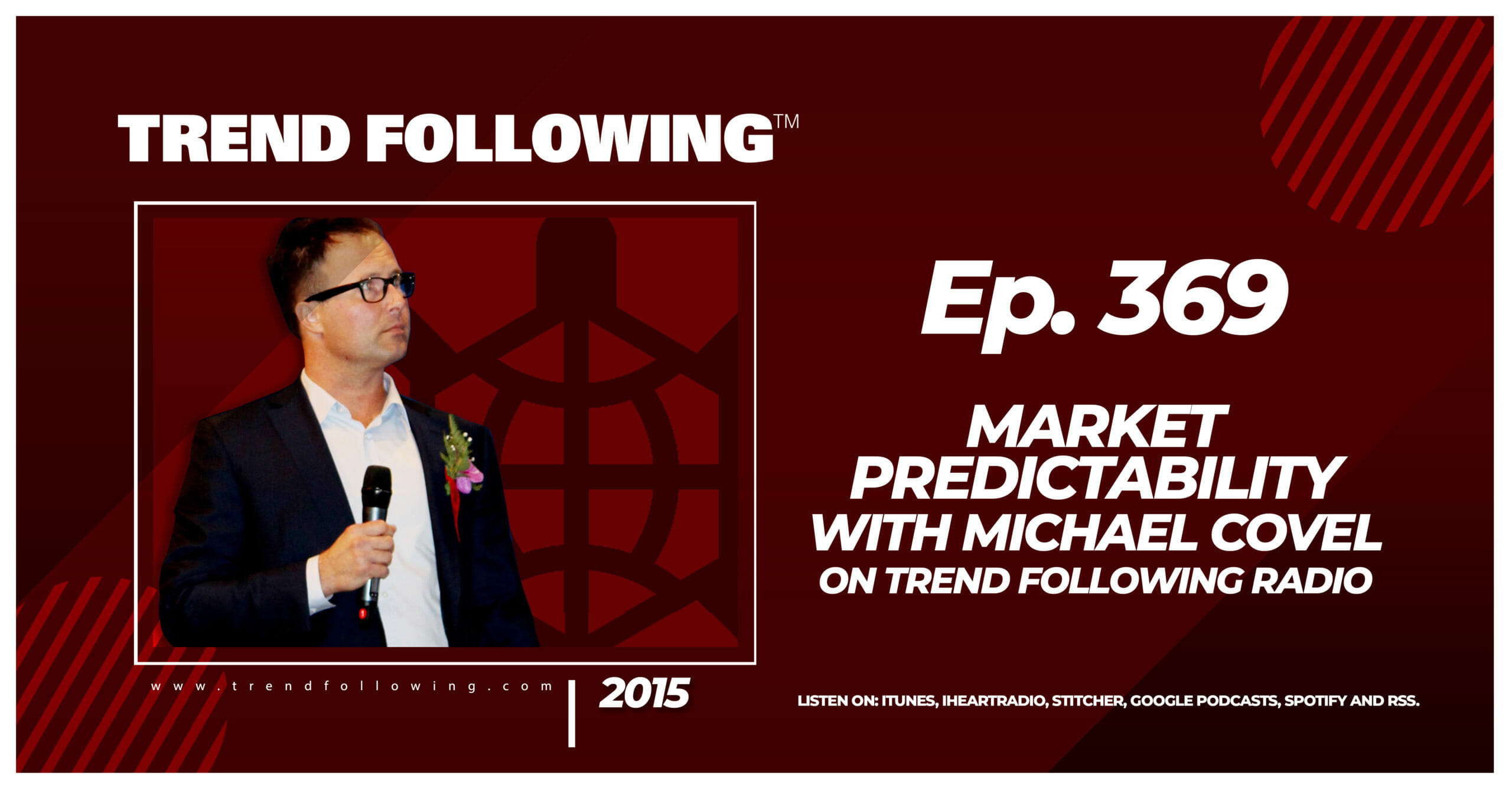
Subscribe to Trend Following Radio on iTunes
Please enjoy my monologue Market Predictability with Michael Covel on Trend Following Radio. This episode may also include great outside guests from my archive.
In this episode of Trend Following Radio:
- Recognizing when you are being misled by the experts
- What to look for in trend analysis and what to be wary of
- Considering bubbles and other unpredictable global factors in the markets
- Finding an objective approach to investing based on quantifiable information
- Considering timeless human investment psychology elements
- Making investment decisions without being blinded by rigid economic processes or political ideologies
“It’s mind numbing to study financial history, because it is so repetitive: we do the exact same things over and over. We have followed this pattern in every major bubble, starting with the coin mania in the Roman empire.” – John Galbraith
Mentions & Resources:
- Doug Litowitz’ blog post about CNBC
- Charlie Munger
- Seth Godin’s blog post about predictions
- John Galbraith, Canadian-American economist
- “Zero to One”, a book by Peter Thiel
Listen to this episode:
- Listen to this podcast on iTunes. (Please leave a rating!)
- Listen on Spotify.
- Listen on Stitcher.
- Libysn RSS.
- Download as MP3 by right-clicking here and choosing “save as.”
- Free Video.
Want to learn more Trend Following? Watch my video here.
Get the foundation to making money in up, down and *surprise markets on the Trend Following mailing list.
Have a question or comment about this episode? Post it below.
